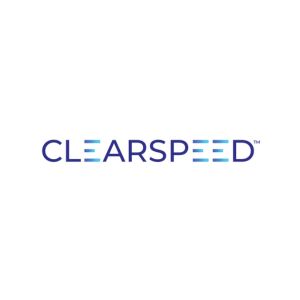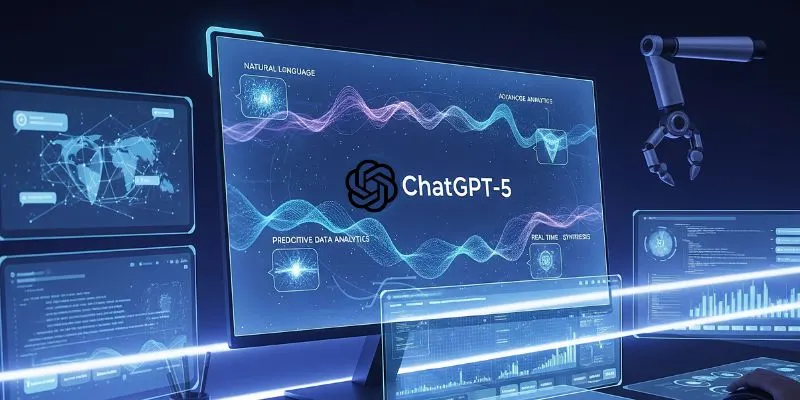
By futureTEKnow | Editorial Team
The world of AI-powered productivity tools just witnessed a seismic shift. Cluely, a Silicon Valley startup, has seen its annual recurring revenue (ARR) soar to $7 million—and it happened in the span of a single week. This meteoric rise is shaking up the tech landscape, but it’s also putting Cluely in the crosshairs of a new generation of open-source competitors.
Cluely’s breakthrough came with the launch of its new enterprise product. The platform uses artificial intelligence to analyze online conversations in real time, delivering instant meeting notes, context, and suggested questions. These insights appear discreetly on the user’s screen, remaining invisible to everyone else. The result? Professionals across industries—from job seekers to enterprise teams—are putting Cluely through its paces.
A few factors set Cluely apart:
AI-powered real-time analysis: Immediate, actionable insights during meetings.
Enterprise-grade features: Enhanced team management and robust security settings.
Strong VC backing: Heavyweights like Andreessen Horowitz, Abstract Ventures, and Susa Ventures are fueling the company’s expansion.
Controversial origins: Founder Roy Lee’s initial tool, designed to “cheat on job interviews,” sparked debate but also viral attention, leading to a rebrand with the tagline: “Everything you need. Before you ask. … This feels like cheating.”
Cluely’s rapid ascent hasn’t gone unnoticed. Pickle, a rival startup, just released Glass, a free open-source alternative with remarkably similar real-time notetaking capabilities. The response was immediate: Glass racked up over 850 stars and nearly 150 forks on its repository within hours of launch, signaling intense interest from the developer community.
The rise of open-source competitors like Glass is more than a blip—it’s a fundamental challenge to the proprietary SaaS model in AI productivity. With the open-source community able to quickly replicate and iterate on core features, Cluely faces mounting pressure to justify its price tag with superior user experience, enterprise security, and support.
Cluely’s ability to attract paying enterprise customers—including a major public company that doubled its annual contract to $2.5 million—shows there’s still strong demand for premium solutions. Its focus on real-time meeting notes (not just post-meeting summaries) and enterprise functionality could be key differentiators in a market that’s rapidly commoditizing core AI features.
But the big question remains: Will users pay for convenience, security, and support, or will the allure of free, open-source tools prove too strong? The AI productivity space is evolving at breakneck speed. For Cluely, the next chapter will be all about continuous innovation and strategic differentiation.
Cluely’s ARR doubled to $7 million in one week after launching its enterprise product.
AI-driven real-time notes and context are driving adoption across industries.
Open-source rivals like Glass are emerging fast, threatening to disrupt the market.
Enterprise features and security may be Cluely’s best bet to stay ahead.
The battle between proprietary AI platforms and open-source upstarts is just heating up—and the outcome could redefine how we all work.
Founded in 2018, futureTEKnow is a global database dedicated to capturing the world’s most innovative companies utilizing emerging technologies across five key sectors: Artificial Intelligence (AI), immersive technologies (MR, AR, VR), blockchain, robotics, and the space industry. Initially launched as a social media platform to share technology news, futureTEKnow quickly evolved into a comprehensive resource hub, spotlighting the latest advancements and groundbreaking startups shaping the future of tech.

SpaceX aims to nearly double launches from Vandenberg in 2025, facing support from federal agencies but strong objections from the state and local communities.

Traditional Medicare will pilot AI-assisted prior authorization in 2026 across six states, focusing on high-risk outpatient services. Clinicians retain final say, but incentives and access concerns loom as CMS tests fraud reduction and “gold card” exemptions. Here’s what providers and patients should know.

OpenArt’s new “one-click story” compresses scripting, visuals, and edits into ready-to-post short videos—fueling viral growth and a fresh IP debate. We break down how it works, adoption signals, what’s next (multi-character, mobile), and practical guardrails creators and brands should follow to stay original and compliant.

OpenAI’s o3 swept the Kaggle AI chess tournament, defeating xAI’s Grok 4–0. The victory fueled the intense rivalry between Altman and Musk, reshaping AI benchmarks.

NASA and Google’s AI-powered Crew Medical Officer Digital Assistant enables autonomous diagnoses for astronauts on Mars missions, redefining remote healthcare for space and Earth.

Pinterest’s CEO confirms that fully agentic AI shopping is years away, as the platform invests in AI-powered tools to enhance discovery, inspiration, and personalized shopping experiences for millions.

Shopify’s new AI shopping tools are transforming e-commerce, letting agents and chatbots deliver smooth, personalized shopping and checkout experiences across platforms. Learn how these innovations reshape online retail.

Meta has acquired WaveForms AI, a startup pioneering emotion-detecting voice technology. Learn what this means for Meta’s AI voice ambitions and the future of AI audio.

Tracelight is revolutionizing financial modelling for finance professionals with AI-powered Excel tools that automate complex tasks, reduce errors, and unlock new analysis capabilities. Learn how this next-gen solution changes the future of spreadsheets.

China’s Lanyue lander completed its first major test, showcasing advanced engineering for safe, crewed moon landings before 2030. Explore how this milestone shapes the space race.

Microsoft rolls out GPT-5 across its Copilot suite, integrating smarter AI for enterprise and personal users. Discover new features, free access, and what sets this launch apart.

OpenAI’s GPT-5 is now live for all ChatGPT users. It brings faster, smarter AI with improved reasoning, expanded context, and safer outputs—marking a major leap in generative technology.
To provide the best experiences, we use technologies like cookies to store and/or access device information. Consenting to these technologies will allow us to process data such as browsing behavior or unique IDs on this site. Thanks for visiting futureTEKnow.